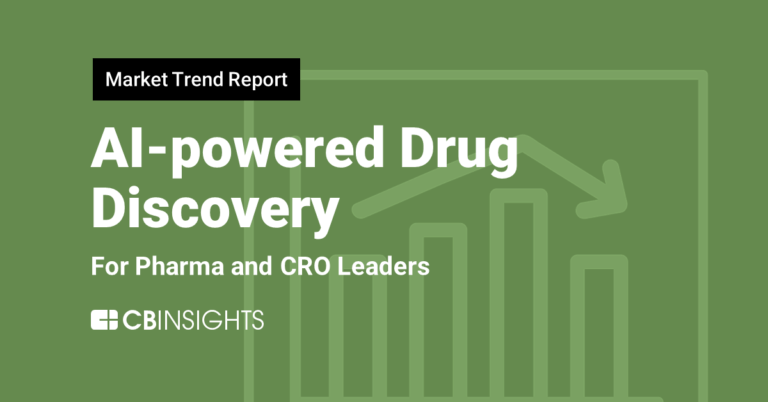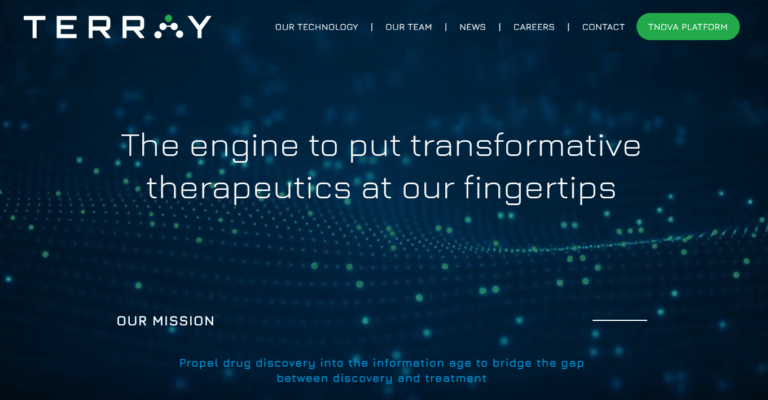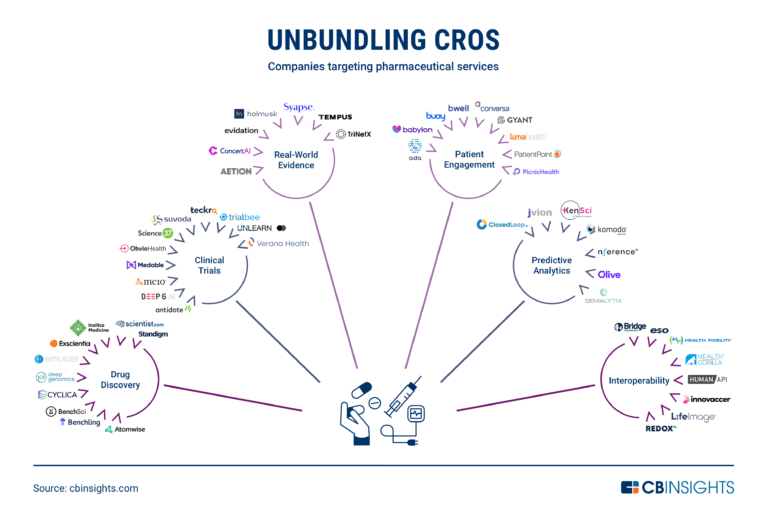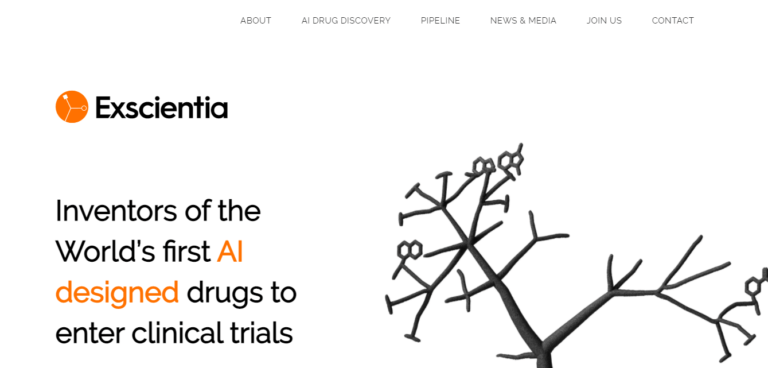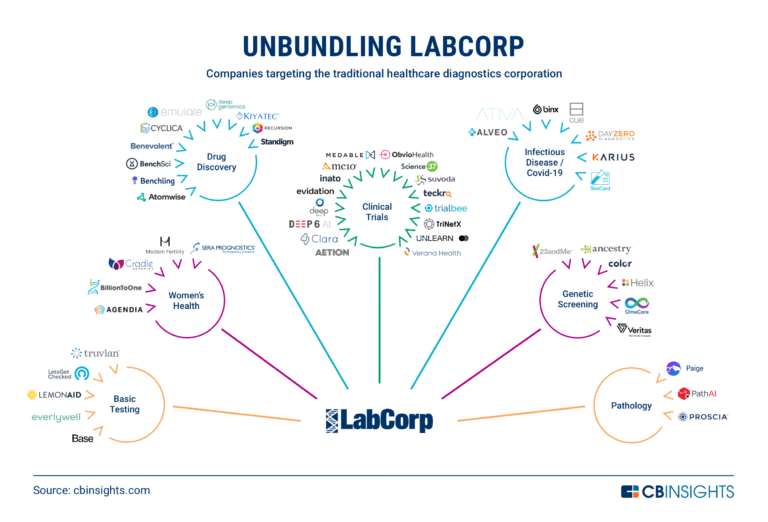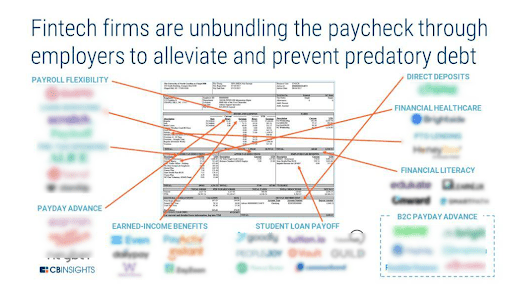
Atomwise
Founded Year
2012Stage
Grant | AliveTotal Raised
$176.42MLast Raised
$2.3M | 3 yrs agoMosaic Score The Mosaic Score is an algorithm that measures the overall financial health and market potential of private companies.
+20 points in the past 30 days
About Atomwise
Atomwise uses deep learning and artificial intelligence (AI)-based neural networks to help discover new medicines. It predicts drug candidates for pharmaceutical companies, start-ups, and research institutions and designs drugs using computational drug design. The company was founded in 2012 and is based in San Francisco, California.
Missing: Atomwise's Product Demo & Case Studies
Promote your product offering to tech buyers.
Reach 1000s of buyers who use CB Insights to identify vendors, demo products, and make purchasing decisions.
ESPs containing Atomwise
The ESP matrix leverages data and analyst insight to identify and rank leading companies in a given technology landscape.
The generative AI — protein & drug design market is a rapidly growing industry that utilizes artificial intelligence to accelerate the process of discovering and designing new drugs. This technology allows for more efficient identification of potential drug candidates, reducing the time and cost associated with traditional methods. Additionally, generative AI can help identify proteins that are di…
Atomwise named as Leader among 11 other companies, including Insilico Medicine, Cradle, and Cyclica.
Missing: Atomwise's Product & Differentiators
Don’t let your products get skipped. Buyers use our vendor rankings to shortlist companies and drive requests for proposals (RFPs).
Research containing Atomwise
Get data-driven expert analysis from the CB Insights Intelligence Unit.
CB Insights Intelligence Analysts have mentioned Atomwise in 9 CB Insights research briefs, most recently on Dec 12, 2022.
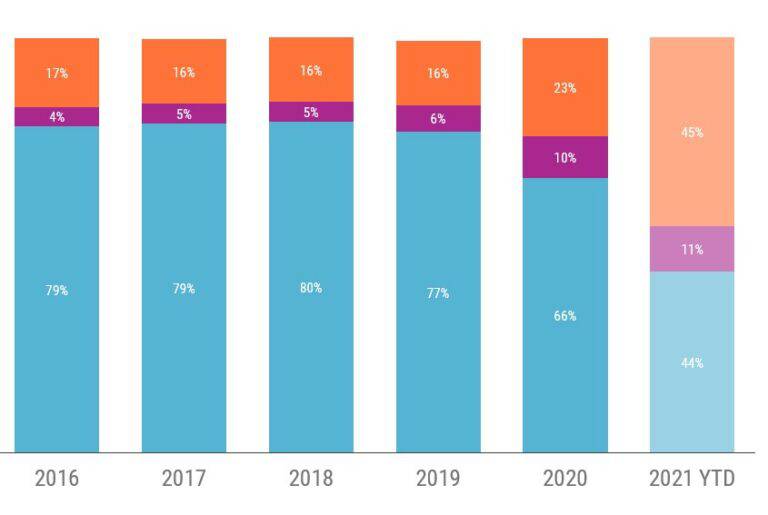
Expert Collections containing Atomwise
Expert Collections are analyst-curated lists that highlight the companies you need to know in the most important technology spaces.
Atomwise is included in 6 Expert Collections, including AI 100.
AI 100
200 items
Artificial Intelligence
10,624 items
This collection includes startups selling AI SaaS, using AI algorithms to develop their core products, and those developing hardware to support AI workloads.
Digital Health 150
300 items
2019's cohort of the most promising digital health startups transforming the healthcare industry
Digital Health
11,223 items
The digital health collection includes vendors developing software, platforms, sensor & robotic hardware, health data infrastructure, and tech-enabled services in healthcare. The list excludes pureplay pharma/biopharma companies and and assistive tech developers.
Biopharma Tech
838 items
Drug Discovery Tech Market Map
221 items
This CB Insights Tech Market Map highlights 220 drug discovery companies that are addressing 12 distinct technology priorities that pharmaceutical companies face.
Atomwise Patents
Atomwise has filed 8 patents.
The 3 most popular patent topics include:
- Classification algorithms
- Machine learning
- Statistical classification

Application Date | Grant Date | Title | Related Topics | Status |
|---|---|---|---|---|
11/6/2019 | 8/3/2021 | Artificial neural networks, Machine learning, Classification algorithms, Spatial data analysis, Statistical classification | Grant |
Application Date | 11/6/2019 |
|---|---|
Grant Date | 8/3/2021 |
Title | |
Related Topics | Artificial neural networks, Machine learning, Classification algorithms, Spatial data analysis, Statistical classification |
Status | Grant |
Latest Atomwise News
May 2, 2023
Drug Discovery and Development [NicoElNino/Adobe Stock] The pharma industry is embracing artificial intelligence (AI) to streamline drug discovery and development, although adoption remains early . The field, however, is rapidly expanding. The global AI in drug discovery market was worth about $1.1 billion last year but could grow at a 30% clip from 2023 to 2030, according to Grand View Research . In the years to come, AI could find use to discover an array of drug targets while improving drug developers’ ability to design molecules based on fine-grained criteria. Here, we spotlight several companies exploring the use of AI in drug discovery and drug development. 1. Exscientia Oxford, UK–based Exscientia (Nasdaq: EXAI) has pioneered AI in small-molecule drug design. The company has expanded its AI-based platform to develop novel therapeutic antibodies through generative AI design. In early 2020, the company reported the first AI-designed drug candidate to enter clinical trials. Exscientia is collaborating with Bristol-Myers Squibb on a handful of drug candidates headed to the clinic . It has also partnered with Sanofi, GSK and PathAI on drug discovery projects. The company is also working with MD Anderson to develop novel small-molecule oncology therapies . 2. Atomwise Also specializing in using AI in small molecule drug discovery, Atomwise inked a deal with Sanofi worth up to $1.2 billion in August 2022. Atomwise has developed AtomNet, a deep learning-driven computational platform for structure-based drug design. The company’s library includes more than three trillion synthesizable compounds. It is a member of the Alliance for Artificial Intelligence in Healthcare (AAIH), advocating for AI research and implementation in the pharma industry. Despite announcing a 30% headcount reduction in December 2022, the company has raised more than $194 million from investors and partnerships to date. 3. Recursion Pharmaceuticals The clinical-stage biotechnology company Recursion (Nasdaq:RXRX) based in Salt Lake City specializes in drug discovery through machine learning using its proprietary Recursion Operating System. Focusing on gene mutation-related diseases, the company claims to have one of the world’s most extensive biological and chemical datasets. It now has several compounds in phase 1 and 2 studies , including a small molecule therapeutic for cavernous cerebral malformation and another for neurofibromatosis type 2. Recursion claims to conduct millions of experiments per week using supercomputers, machine learning and automated robotic labs. The company went public in 2021. 4. Iktos Specializing in AI for de novo drug design, Paris-based Iktos is exploring the use of AI technology for ligand and structure-based de novo drug design, specializing in multi-parametric optimization (MPO). Iktos is unique in its focus on generative modeling with built-in synthetic accessibility for drug discovery. The company has several partnerships. In June 2022, Iktos announced a collaboration with Galapagos focused on its generative modeling AI technology. Also in 2022, Iktos and Ono Pharma unveiled a collaboration to expedite the identification of potential pre-clinical candidates. A partnership with Sygnature Discovery is centered around applying Iktos’s generative design software Makya to enable the rapid design of novel compounds. 5. Insilico Medicine Insilico Medicine is a Hong Kong–based clinical-stage, generative AI–based drug discovery company focused on accelerating drug discovery and development processes. The company has developed several AI-based platforms, such as Pharma.AI, PandaOmics and ALS.AI. It has raised more than $400 million to date, according to Crunchbase . In April, the company used DeepMind’s deep learning-driven AlphaFold protein structure database to design and synthesize a potential hepatocellular carcinoma (HCC) drug in only 30 days. Insilico relies on various AI models, including generative adversarial networks (GANs) and deep learning-driven AlphaFold protein structure databases. Insilico Medicine also employs AI-powered chatbots like “ChatPandaGPT” to interact with researchers and scientists, identify new drug targets and predict the effectiveness of experimental drugs. 6. Relay Therapeutics Cambridge, Massachusetts–based Relay Therapeutics uses computational and experimental technologies to improve small molecule therapeutic discovery. The company has a particular focus on targeted cancer and genetic disease indications. Its technology supports the rational allosteric drug discovery process, using insights from protein motion in drug development. A notable example of a drug it has identified is RLY-4008, which promises to find use in treating FGFR2-altered solid tumors. The company also unveiled promising initial clinical data for RLY-2608, a novel allosteric, pan-mutant and isoform-selective inhibitor of PI3Kα. 7. BenevolentAI The clinical-stage drug discovery company developed an AI-enabled platform to accelerate drug discovery. Its Benevolent Platform uses AI and machine learning to analyze vast amounts of biomedical data to provide a multidimensional representation of human biology across all diseases. One of the core focuses of the company is using AI to improve the selection of drug targets. “We have been able to spend a lot of time investing and thinking about the very best way that we can come up with means of identifying the very best target,” said Dr. Anne Phelan, the company’s chief scientific officer, in a recent talk at the Royal Society . Target selection is one of the most vital in drug discovery. “If fundamentally you’ve chosen the wrong target at the outset, then everything else down the line is increasingly difficult in terms of getting to the clinic and having any chance of clinical success.” To improve those chances of success, the company focuses on unraveling the complexity of human disease biology. To that end, it seeks to identify as much data as possible for its AI algorithms to ingest. “We’re thinking about literature, patents and any form of written documentation, where large language models can increasingly extract not just facts but also inferred knowledge from that literature,” Phelan said. “We’ve got information around the pathology of diseases, symptoms and imaging information, but a focus on biological systems — dysregulated processes and mechanisms right at the cellular level.” To date, The company has established collaborations with multiple Big Pharma companies, including AstraZeneca, GSK and Novartis. Its alliance with AstraZeneca centers around identifying novel drug targets for chronic kidney disease (CKD) and idiopathic pulmonary fibrosis (IPF). That collaboration has resulted in the selection of three novel targets for drug development, with milestone payments made to BenevolentAI for each of those. 8. Pfizer The world’s biggest pharma company has partnerships with several AI companies, including Truveta, Gero, CytoReason and Tempus. These collaborations aim to deliver new safety insights, discover potential therapeutic targets for fibrotic diseases and apply AI for drug discovery and development. In addition, Pfizer has entered into a data-sharing agreement with Vysioneer to augment oncology clinical trials with AI. The company is also creating a machine learning (ML) research hub dedicated to creating new predictive models and tools. Applications include using ML to explore disease pathophysiology and creating testable hypotheses. Pfizer is also using AI to improve its understanding of patient populations and stratifications through the Pfizer Innovation Research (PfIRe) Lab. Additionally, Pfizer has developed dashboards to monitor the effect of COVID-19 on clinical trials in real-time using digital technologies and AI. Pfizer scientists have used AI and supercomputing to create new vaccines and medicines, such as the oral COVID-19 treatment Paxlovid. 9. AstraZeneca The Cambridge, UK-based startup has collaborated with more than 100 prominent pharma partners and AI providers since 2015. Partners include Clinithink, Qure.ai, BenevolentAI and Medsol AI Solutions. Focuses of those partnerships involve applying machine learning to the identification and development of novel therapeutics for chronic renal disease and idiopathic pulmonary fibrosis. Additionally, AstraZeneca is using AI and data science across its R&D projects. AstraZeneca is collaborating with other businesses to improve its AI skills, including Viking Therapeutics to speed up the development of NASH drugs and the sequencing behemoth Illumina to identify new drug discovery targets. The business is also utilizing AWS services to drive operational efficiency. 10. Janssen The Johnson & Johnson subsidiary is embracing AI’s potential in various drug development domains, ranging from target discovery to clinical trials. In a recent presentation, the company’s chief data science officer said the company is building a team of “bilingual” employees skilled in clinical research and data science. Like other Big Pharma firms, Janssen is also exploring the use of AI across it drug development activities, including drug discovery, clinical trial design, patient identification and manufacturing optimization. To date, the drug company has more than 100 ongoing AI projects. Janssen is tapping the power of AI in clinical trial design as well. By analyzing patient data and trial outcomes, the company is using algorithms to help refine criteria, improve patient selection and identify potential trial pitfalls. For instance, the company’s Trials360.ai platform uses machine learning to optimize site feasibility, site engagement and patient recruitment. Brian Buntz The pharma and biotech editor of WTWH Media, Brian is a veteran journalist with more than 15 years of experience covering an array of life science topics, including clinical trials, drug discovery and development and medical devices. Before coming to WTWH, he served as content director focused on connected devices at Informa. In addition, Brian covered the medical device sector for 10 years at UBM. At Qmed, he overhauled the brand’s news coverage and helped to grow the site’s traffic volume dramatically. He had previously held managing editor roles on two of the company’s medical device technology publications. Connect with him on LinkedIn or email at [email protected] Tell Us What You Think!
Atomwise Frequently Asked Questions (FAQ)
When was Atomwise founded?
Atomwise was founded in 2012.
Where is Atomwise's headquarters?
Atomwise's headquarters is located at 717 Market Street, San Francisco.
What is Atomwise's latest funding round?
Atomwise's latest funding round is Grant.
How much did Atomwise raise?
Atomwise raised a total of $176.42M.
Who are the investors of Atomwise?
Investors of Atomwise include Bill & Melinda Gates Foundation, DCVC, Y Combinator, Tencent Holdings, B Capital Group and 12 more.
Who are Atomwise's competitors?
Competitors of Atomwise include SyntheticGestalt, Brightseed, BERG, Cyclica, nference, BenevolentAI, Terray Therapeutics, Valence, Redesign Science, Exscientia and 21 more.
Compare Atomwise to Competitors

insitro is a data-driven drug discovery and development company that leverages machine learning and high-throughput biology to transform the way medicines are created to help patients.

Cyclica offers artificial intelligence (AI) and computational biophysics based drug discovery process. Its structure-based and artificial intelligence (AI) augmented drug discovery platform includes Ligand Design for multi-targeted and multi-objective drug design, and Ligand Express for off-target profiling, systems biology linkages, and structural pharmacogenomic insights. The company was founded in 2013 and is based in Toronto, Canada.

Aitia is a health tech company using Causal AI and Digital Twins to discover the next generation of breakthrough drugs. By leveraging the convergence of multi-omic patient data, high-performance computing, and causal learning and AI, Aitia is revealing the hidden biological mechanisms of disease to create Digital Twins of disease in oncology, neurodegenerative disorders, and immunology. Gemini Digital Twins are being used today to discover novel therapies and accelerate R&D in multiple myeloma, prostate cancer, Alzheimer’s Disease, Parkinson’s Disease, and Huntington’sDisease, with several more in development. Aitia’s partners include pharmaceutical companies, academic research and medical centers, medical societies, multi-omic data companies, and patient advocacy groups globally. Aitia was formerly GNS Healthcare and rebranded in January 2023. Aitia was founded in 2000 and is based in Somerville, Massachusetts.

Standigm is an AI and systems biology-based startup that aims to expedite the drug discovery process. Standigm develops a computer modeling technology that learns medical and biological information and predicts the action mechanism of pharmaceutics in advance. This technology can improve the pharmaceutical development process by tailoring the application of previous know-hows, come up with possible combinations of pharmaceuticals, and optimize the selection of candidates and participants for clinical trials.

Healx provides drug discovery services. The company manufactures drugs using technology to bring treatments for rare diseases to patients. Its platform, Healnet, helps face challenges by analyzing drug and disease data points. The company was founded in 2014 and is based in Cambridge, U.K.

Aria Pharmaceuticals is a preclinical-stage pharmaceutical company that discovers and develops novel small molecule therapies for complex and hard-to-treat diseases
Discover the right solution for your team
The CB Insights tech market intelligence platform analyzes millions of data points on vendors, products, partnerships, and patents to help your team find their next technology solution.
